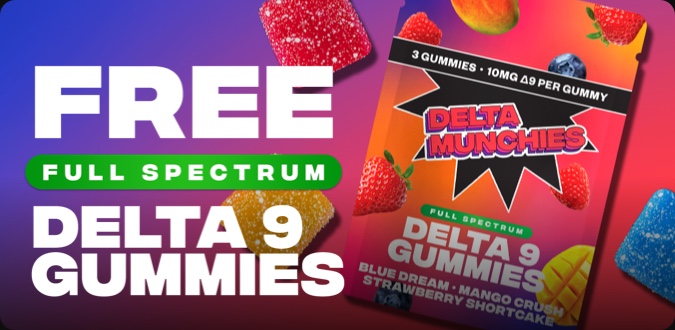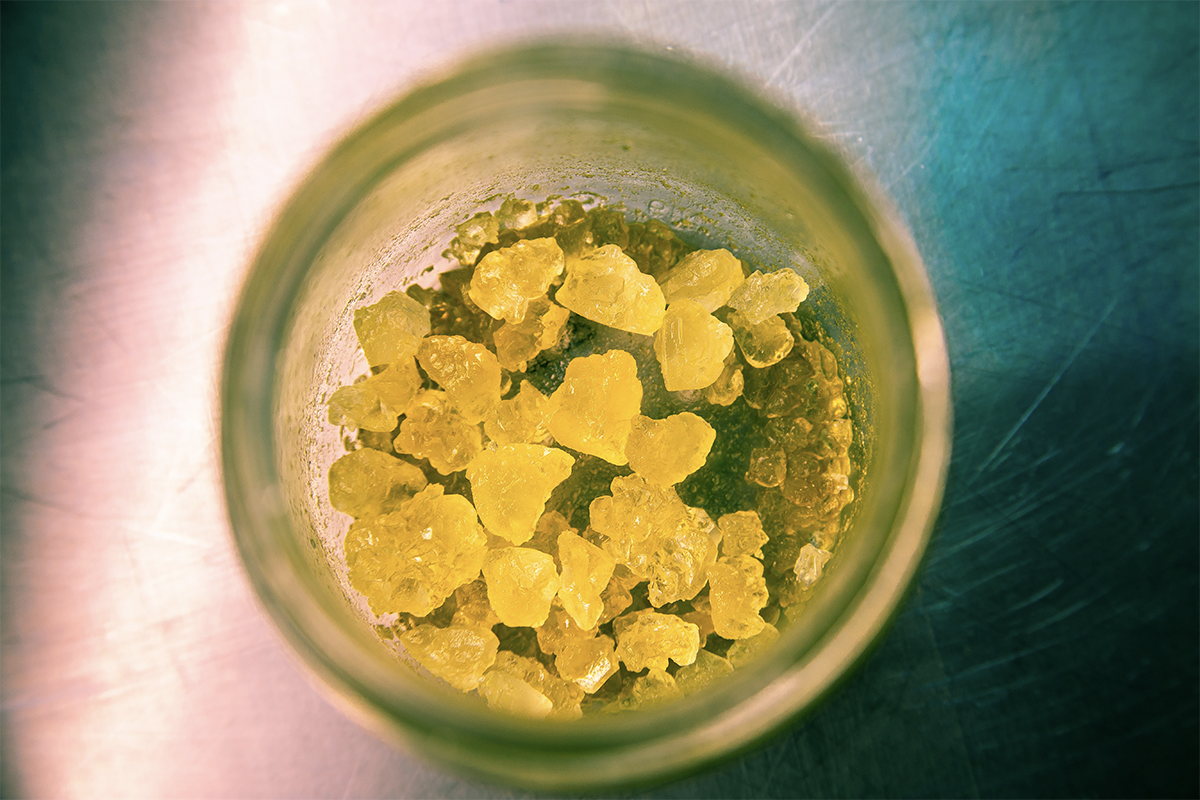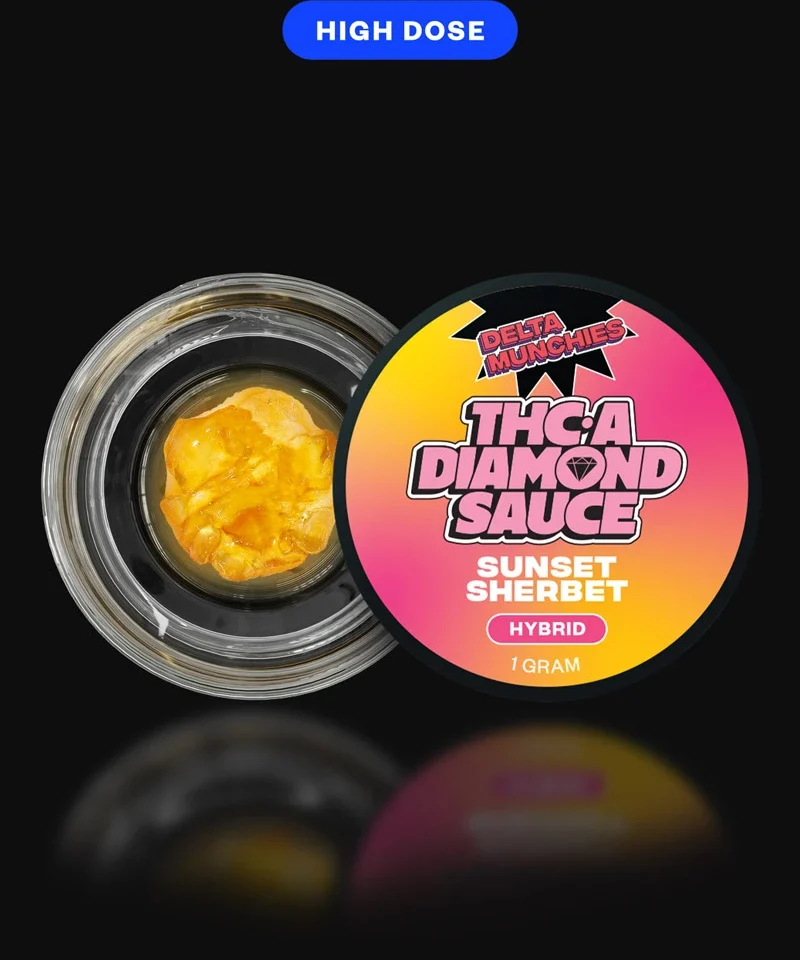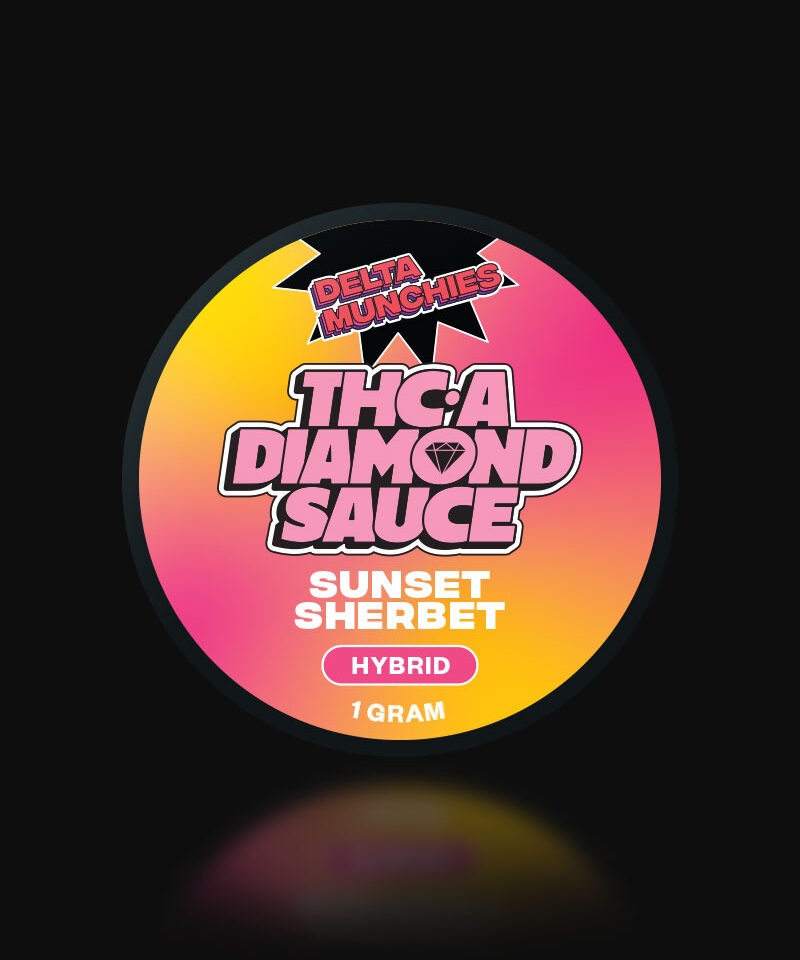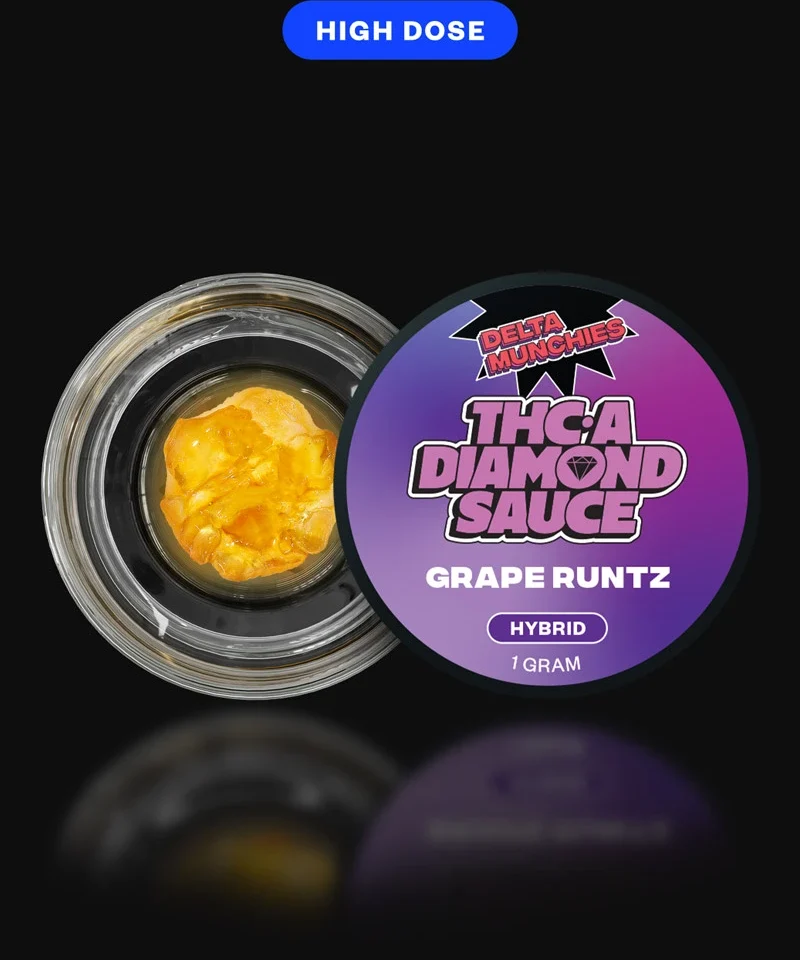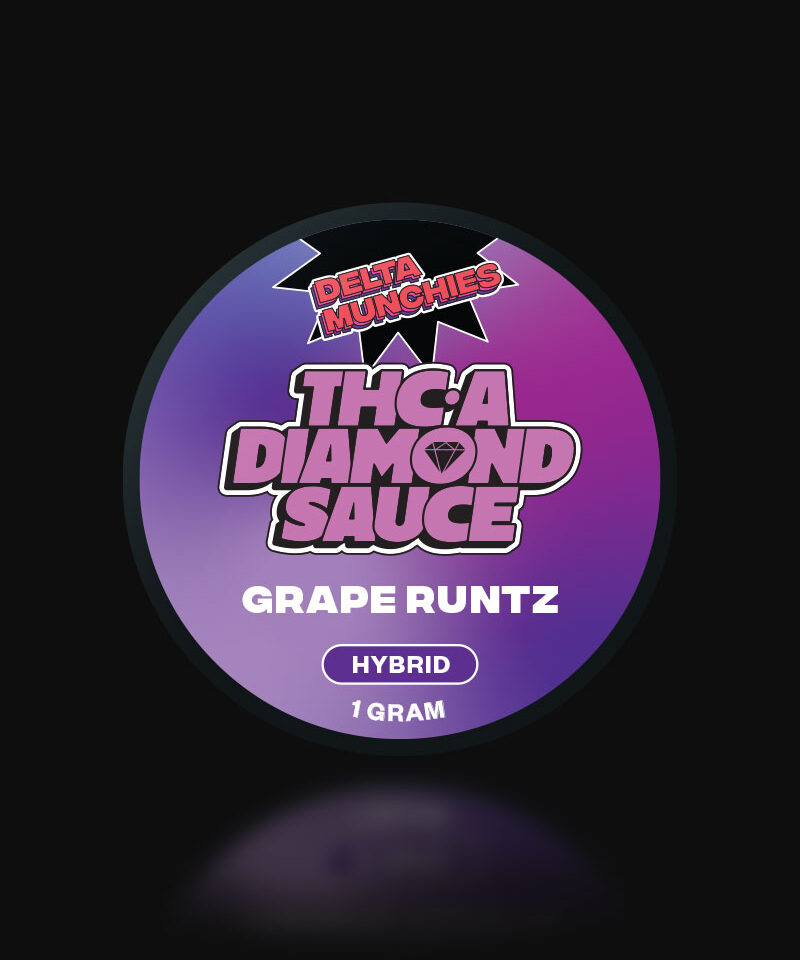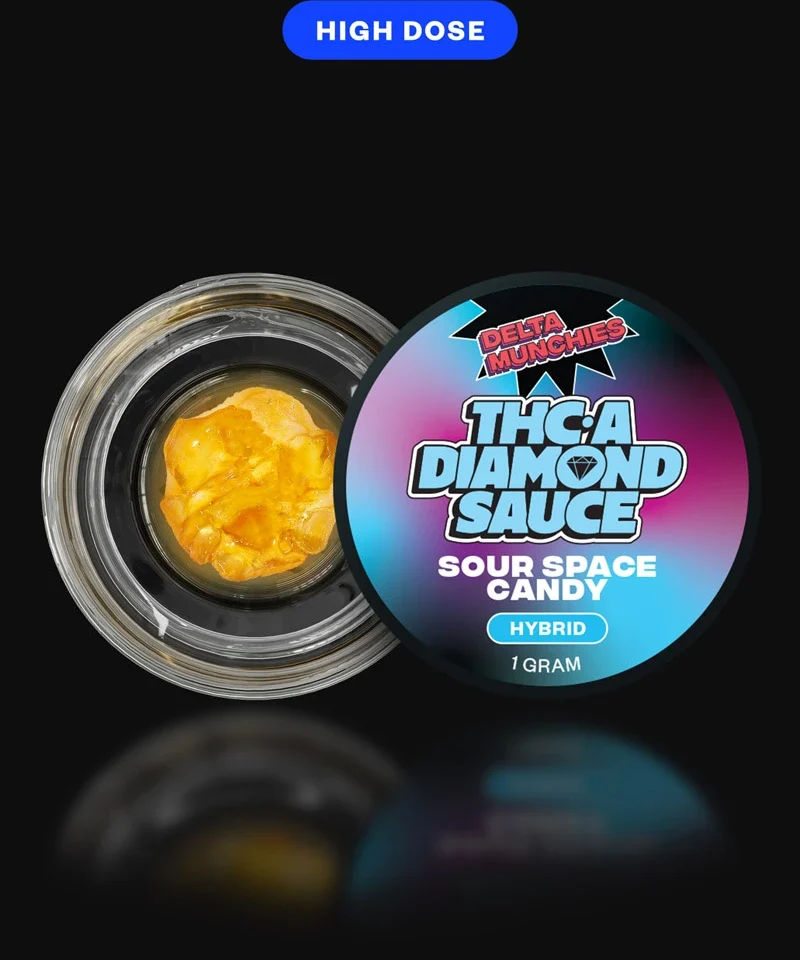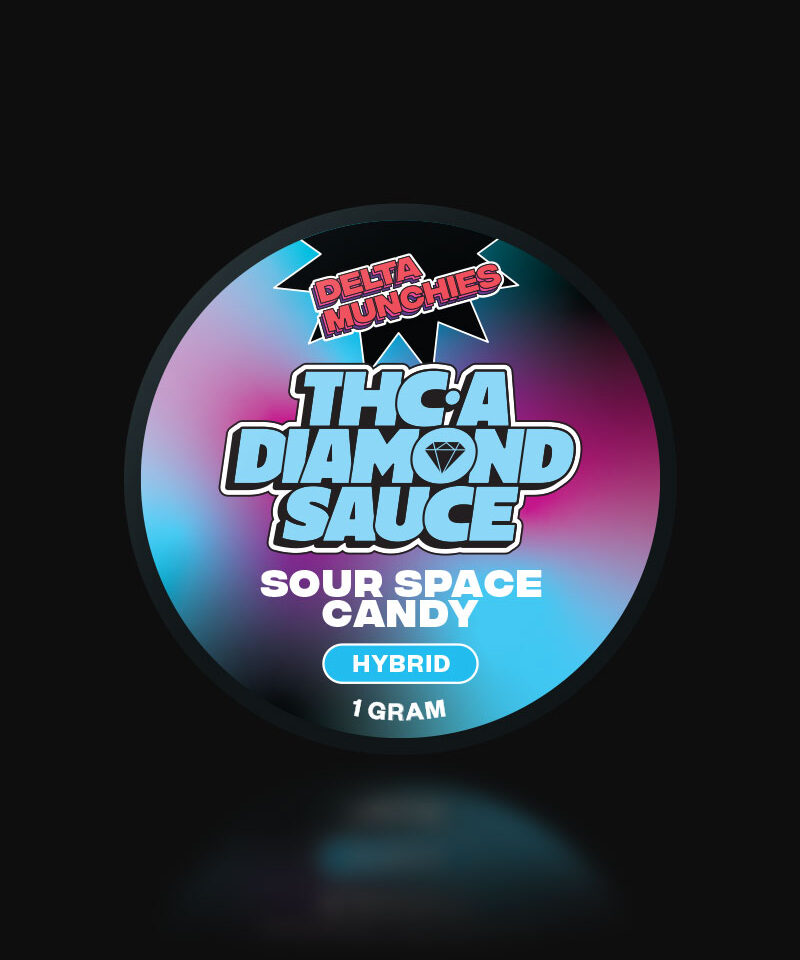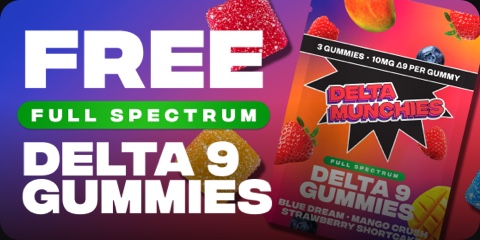Informative, Lifestyle
Does Dabbing THCA Get You High?
Dabbing is one of the more popular ways cannabis enthusiasts choose to consume their products, as it lets you inhale highly concentrated amounts in short bursts. But will dabbing THCA get you high?
If you’re wondering how dabbing affects THCA, we understand your question. After all, it is important to know how the various products we consume affect our bodies.
Not surprisingly, you’re alone in your search for answers. But at least you’re in the right place.
In the following paragraphs, we explore THCA and its effects and examine how dabbing changes the equation. Keep reading to discover what dabbing THCA does and whether it will get you high.
Want to try THCA dabs? Check out our new THCA Diamond Sauce Dabs!
Contents
- Key Takeaways
- What is THCA?
- THCA vs. THC: Understanding the Differences
- The Effects of THCA
- The Experience of Dabbing THCA
- What are the Benefits of Dabbing THCA?
- How Do You Decarb THCA?
- Possible Side Effects of THCA
- Does Dabbing THCA Get You High?
- Final Thoughts
- Where to Buy the Best THCA Dabs Online?
- Dabbing THCA: Frequently Asked Questions
Key Takeaways
- Dabbing is one of the more popular ways people choose to consume THCA and other hemp-derived products.
- Dabbing THCA will get you high as the heat from the dab rig triggers decarboxylation of THCA to THC.
- Decarboxylation refers to the conversion of THCA to THC by breaking its extra carboxyl group in the presence of heat.
What is THCA?
THCA, or tetrahydrocannabinolic acid, is another of the many naturally occurring compounds found in cannabis plants.
But more interestingly, it is the acidic precursor to THC, or tetrahydrocannabinol, the more popular compound that’s responsible for the psychoactive effects of cannabis. However, THCA occurs in varying percentages, depending on the plant.
You see, in their raw form, cannabis plants do not produce THC. Instead, the plant produces THCA, which then gets converted to THC through a process called decarboxylation. This process is typically triggered in the presence of heat or light.
Now, here’s the twist.
THCA itself is not psychoactive. In other words, consuming THCA in its original form will not get you high. However, processes such as cooking, smoking, or vaporizing will typically trigger the decarboxylation of the THCA due to the presence of heat. This way, you get the intoxicating THC.
If you’re more interested in the science-y bits, THCA occurs naturally in the cannabis plant through a biosynthetic pathway. It starts with the precursor compound cannabigerolic acid (CBGA), which then undergoes enzymatic reactions to form THCA.
THCA vs. THC: Understanding the Differences
Both THCA and THC are naturally cannabinoids that are found in the cannabis plant. But that may be all the similarities they share. The two compounds have very distinct properties, chemical structures, effects, and more.
On the one hand, THCA is the non-intoxicating precursor to THC. In its raw form, THCA is non-psychoactive and will not intoxicate or get you high. This is because THCA has an extra carboxyl group that prevents it from binding to the brain’s CB1 receptors. However, decarboxylation causes it to lose that extra carboxyl group and converts it to THC.
On the other hand, THC is the primary psychoactive compound in cannabis and is responsible for the “high” or intoxicating effects associated with its use. It interacts with the cannabinoid receptors in the brain, specifically the CB1 receptors, to produce various physiological and psychological effects.
When THCA is exposed to heat, it causes the carboxyl group to detach from the THCA, resulting in conversion to THC. Of course, this transformation means that the psychoactive properties of THC are activated.
Generally, the heat from smoking THCA will instantly decarboxylate it. However, cooking or baking with THCA-infused oils or edibles will also trigger the decarboxylation process, typically at temperatures around 220-240°F for about 30-60 minutes.
The Effects of THCA
Anecdotal evidence from users suggests that many consumers turn to THCA for its potential wellness and therapeutic benefits. While research on THCA is still limited, preliminary studies suggest that it may possess anti-inflammatory, neuroprotective, antiemetic (anti-nausea), and pain-relieving properties.
Does THCA Get You High?
The answer’s no.
THCA is non-psychoactive and has a different chemical structure from the intoxicating compound in cannabis, which is THC. As a result, if you consume THCA in its raw, natural form, it will not get you high.
However, in the presence of heat, THCA goes through a process known as decarboxylation, which activates its psychoactive properties. In other words, if you expose THCA to heat through processes like smoking and cooking, it becomes the psychoactive THC and will intoxicate you.
Nevertheless, the bottom line is that consuming raw cannabis or THCA-rich strains without decarboxylation will not result in the euphoric or psychoactive effects typically associated with THC. However, you may enjoy some potential therapeutic benefits.
The Experience of Dabbing THCA
Dabbing and vaping THCA are two of the fastest ways to convert THCA into the intoxicating compound (THC) we all know and love. Even more, these methods will produce almost pure THC upon decarboxylation.
However, for the purposes of this article, we’ll focus on the dabbing sides of things.
With THCA dabbing, you can convert THCA into THC within seconds. Upon administration, you’ll generally start feeling the effects of the THC in minutes.
To consume THCA through dabbing, you’ll need a dab rig — a specialized water pipe or vaporizer designed for consuming concentrates. A dab rig typically consists of a nail or banger, a glass chamber, a mouthpiece, and a water filtration system. Or you could try a dab cart, which is essentially a vape that allows you to refill the cartridge.
Here’s how dabbing THCA typically works:
- Heating the Nail or Banger: The nail or banger in most dab rigs is usually made of quartz, titanium, or ceramic. To consume THCA through dabbing, you’ll first need to heat the nail using a lighter or torch until it reaches the desired temperature.
- Applying the THCA: Once the nail is hot enough, you can then place a small amount of THCA concentrate (usually THCA diamonds) on the heated surface using a dab tool. The high temperature of the nail instantly decarboxylates the THCA while converting it to vapor.
- Inhaling the Vapor: Once your dab rig has produced the desired vapor, inhale it through the dab rig’s mouthpiece and pull it into your lungs, where the magic happens.
- Exhaling and Effects: We probably don’t need to walk you through this part, but you’ll need to exhale the rest of the vapor your body does not absorb. You’ll typically start feeling the effects within minutes as dabbing THCA delivers a concentrated form of THC cannabinoids.
With dabbing, you should be careful not to put too much THCA concentrates on the dab rig’s banger as this may mean losing some valuable to improper vaporization. Also, make sure to clean your dab rig regularly to prevent a build-up of residue, which can cause unpleasant flavors.
What are the Benefits of Dabbing THCA?
Dabbing THCA comes with so many benefits. Here are some of the top ones:
Potency
THCA concentrates are highly concentrated forms of cannabis that can have significantly higher levels of THC compared to traditional flower or other cannabis products. By dabbing THCA, you get a potent dose of THC that allows for an intense cannabis experience.
Fast-Acting Relief
One of the many perks to dabbing THCA is its strong and immediate effect. Inhaling THC allows for rapid absorption of cannabinoids into the bloodstream, and dabbing helps you convert THCA to THC in vapor form. This is particularly beneficial if you prefer to experience the effects of THC as quickly as possible.
Precise Dosage
Dabbing THCA concentrates allows for precise dosage control, which helps achieve an optimal cannabis experience. Since you can easily measure the amount of concentrate you want to consume, you don’t have to worry about excessive consumption.
Flavor Profile
THCA concentrates often retain the natural terpene profile of the cannabis strain from which they are derived. This means that dabbing THCA can provide a rich and flavorful experience, allowing you to enjoy the distinct flavors and aromas of different cannabis strains.
Efficiency
Dabbing THCA can be an efficient method of consumption. The high temperatures used in dabbing help vaporize the THCA efficiently, resulting in a more complete and effective extraction of cannabinoids and terpenes.
How Do You Decarb THCA?
You already know that decarboxylation means the conversion of THCA to THC in the presence of heat and light. But how do you trigger this process?
There are several ways you can decarb THCA. Here are the top options:
Oven Baking
This is generally one of the simplest and most accessible methods. To decarb your THCA with oven baking, you’ll need to preheat the oven to around 220-240°F (105-115°C). Next, spread your THCA concentrate or ground flower on a baking sheet lined with parchment paper, and then bake for approximately 30-45 minutes.
However, ensure you keep a close eye on the process to avoid overcooking.
Decarboxylation Devices
There are several specialized devices specifically designed to help you decarb THCA. Generally, these devices use a combination of controlled heat and time to trigger the decarboxylation process and activate the THCA.
However, decarboxylation devices may be expensive to acquire, especially if you’re not heavily invested in THCA. On the bright side, these devices will give you precise control over the decarbing process.
Rosin Press
If you have a rosin press, you can decarboxylate THCA by applying heat and pressure. Place your THCA concentrate or flower between parchment paper, and apply heat and pressure using the rosin press. However, you’ll have to monitor the process until decarboxylation is achieved.
Infusion Methods
Since decarboxylation essentially requires heat, you can also trigger the process through cooking or infusion methods. The heat from cooking or simmering can naturally decarboxylate THCA, allowing it to be activated and infused into oils, butter, or other foods.
Possible Side Effects of THCA
On its own, THCA generally does not have any side effects since it is a non-psychoactive compound. However, upon decarboxylation to THC, the risk of potential side effects increases by a fair margin.
Here are some potential side effects of THCA after decarboxylation:
- Impaired coordination and motor skills
- Altered vision and perception
- Dry mouth and thirst
- Increased heart rate
- Anxiety and possible paranoia
However, the good news is these side effects are generally not life-threatening and will usually resolve themselves as time passes.
Either way, it is usually a good idea to watch your dosage levels with THCA, especially if you’re just starting out and unsure of your tolerance level. Start with smaller doses and slowly work your way up until you find your optimal dosage.
Does Dabbing THCA Get You High?
Technically, the answer is yes.
However, dabbing THCA itself does not typically get you high, as THCA is a non-intoxicating compound. However, dabbing introduces heat to the THCA concentrates, which triggers a process known as decarboxylation and converts it into psychoactive THC. It is this THC that produces the high you get when you dab THCA.
How Potent is THCA?
THCA itself is not considered to be psychoactive or potent in terms of producing intoxicating effects. It is the precursor to THC, which is the compound responsible for the psychoactive effects of cannabis. In its raw form, THCA has little to no psychoactive potency.
Final Thoughts
THCA is getting increasingly popular in the cannabis world as more people are learning about it and the critical role it plays in the creation of the THC we all love. After all, without THCA, there will be no THC.
That said, dabbing THCA will generally get you high. This is because while THCA itself is non-psychoactive, the heat from the dab rig triggers decarboxylation and converts it to THC.
Where to Buy the Best THCA Dabs Online?
If you’re looking to buy THCA dabs, Delta Munchies is your one-stop shop for premium THCA concentrates and more.
Click here to shop on our website today. With Delta Munchies, you can rest assured that you’re getting top-quality products manufactured to the highest production standards and safety regulations.
Check out our new THCA Diamond Sauce Dabs!
Dabbing THCA: Frequently Asked Questions
Does THCA Get You High Like Delta 9 THC?
No, THCA is non-psychoactive and will not get you high like delta 9 THC. However, upon decarboxylation, THCA converts to THC, which will get you high.
What is the Difference Between THCA & THC?
The primary difference is their chemical structure. THCA possesses an extra carboxyl group, which makes it unable to bind to the brain’s CB1 receptors. As a result, THC is a psychoactive compound, while THCA is not.
Is it Legal to Use THCA?
The 2018 federal Farm Bill makes it legal to buy and consume hemp-derived products as long as they contain no more than 0.3% THC on a dry weight basis. Therefore, it is technically legal to use THCA as long as it meets these requirements.
What Percentage is THCA High?
THCA is non-psychoactive and does not have any “high” percentage.
What Type of High is THCA?
On its own, THCA does not produce a high and therefore does not fall into either of the classification of head high or body high.
Is THCA Indica or Sativa?
THCA is not classified as either indica or sativa because it is non-psychoactive and only the precursor to THC.



